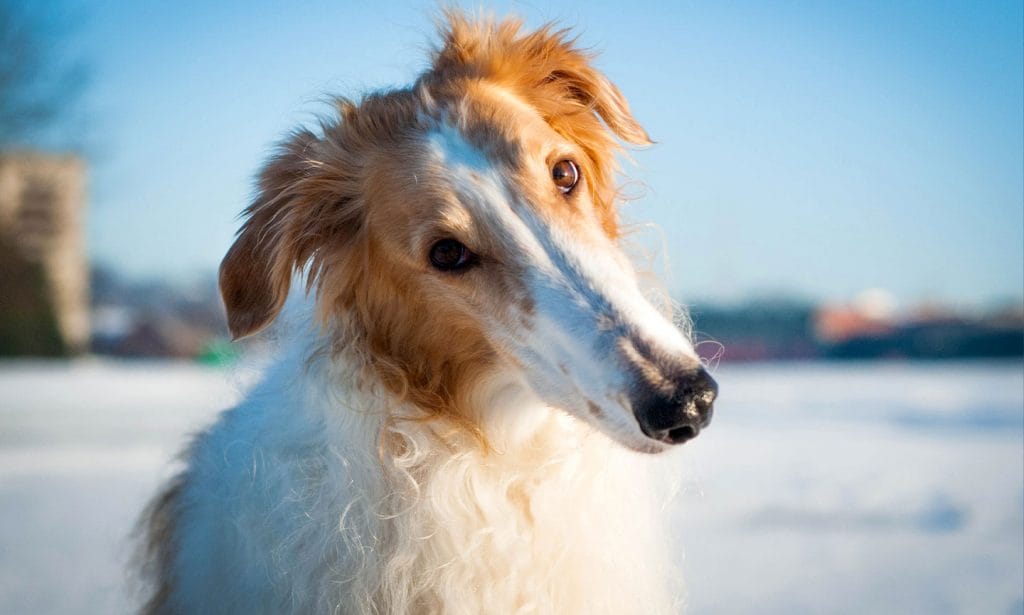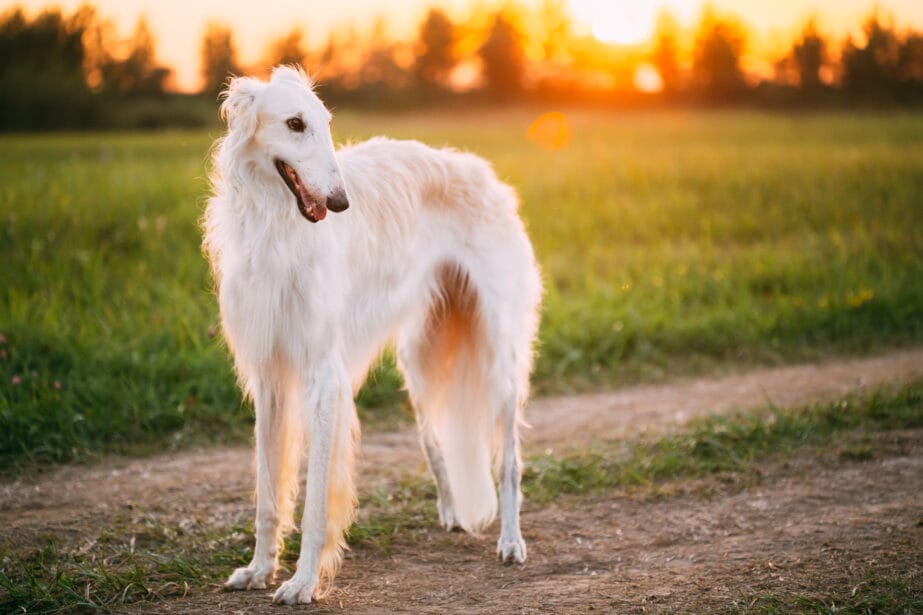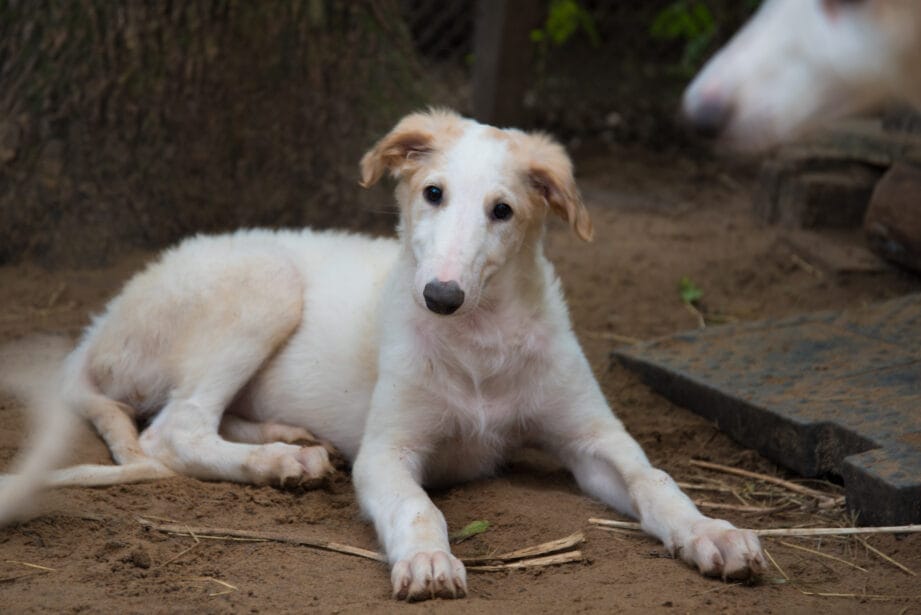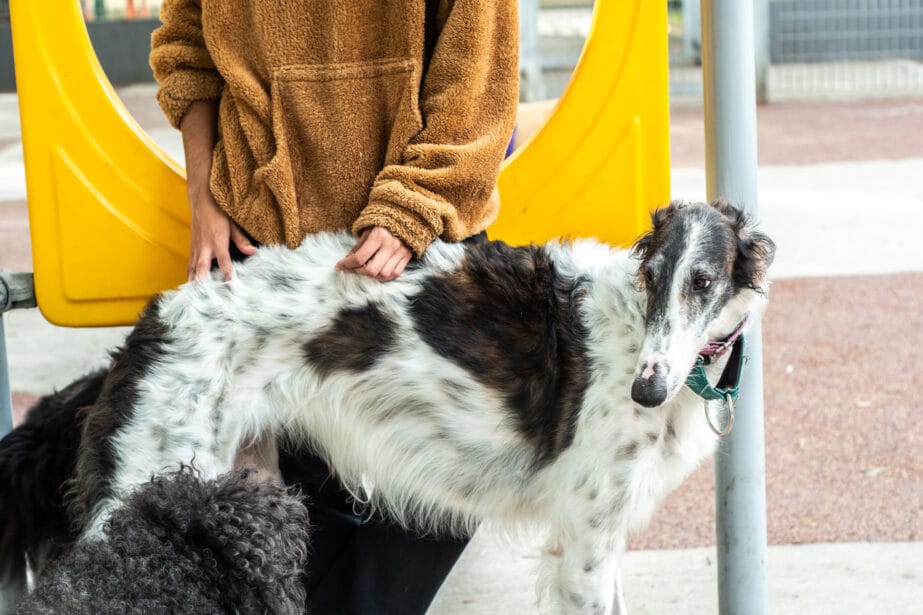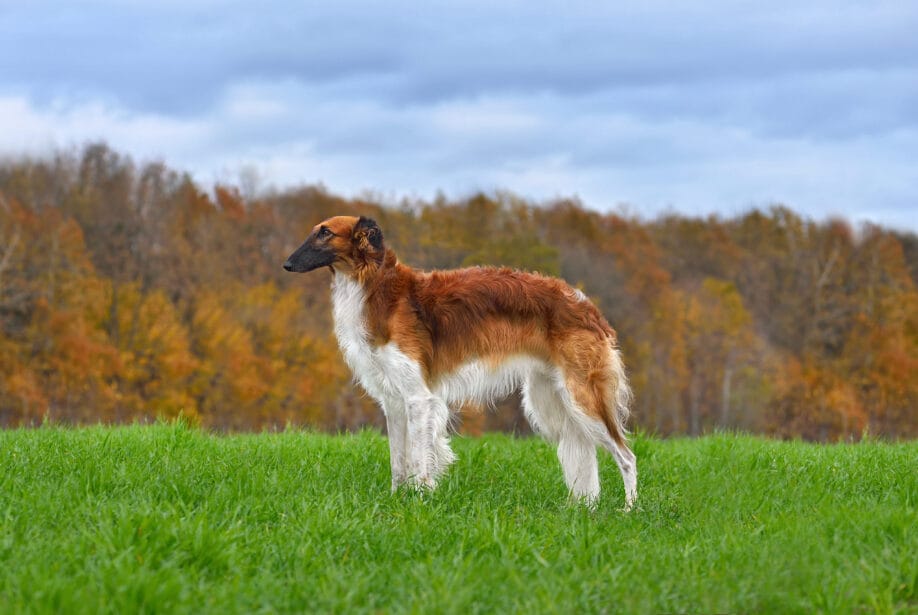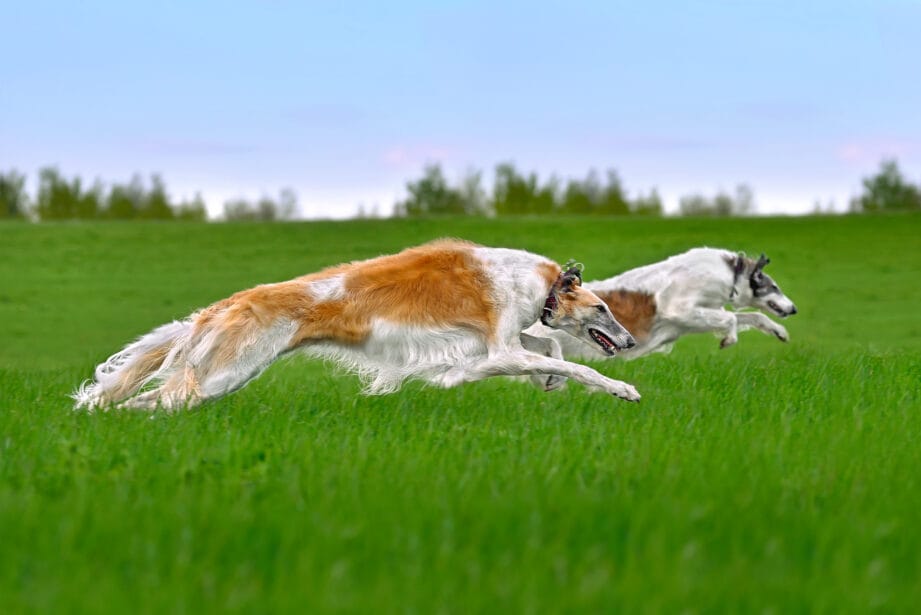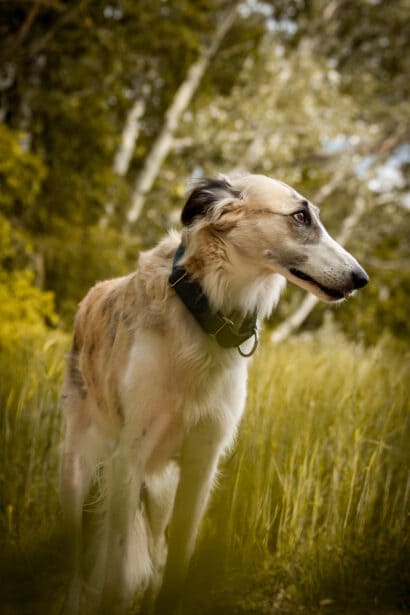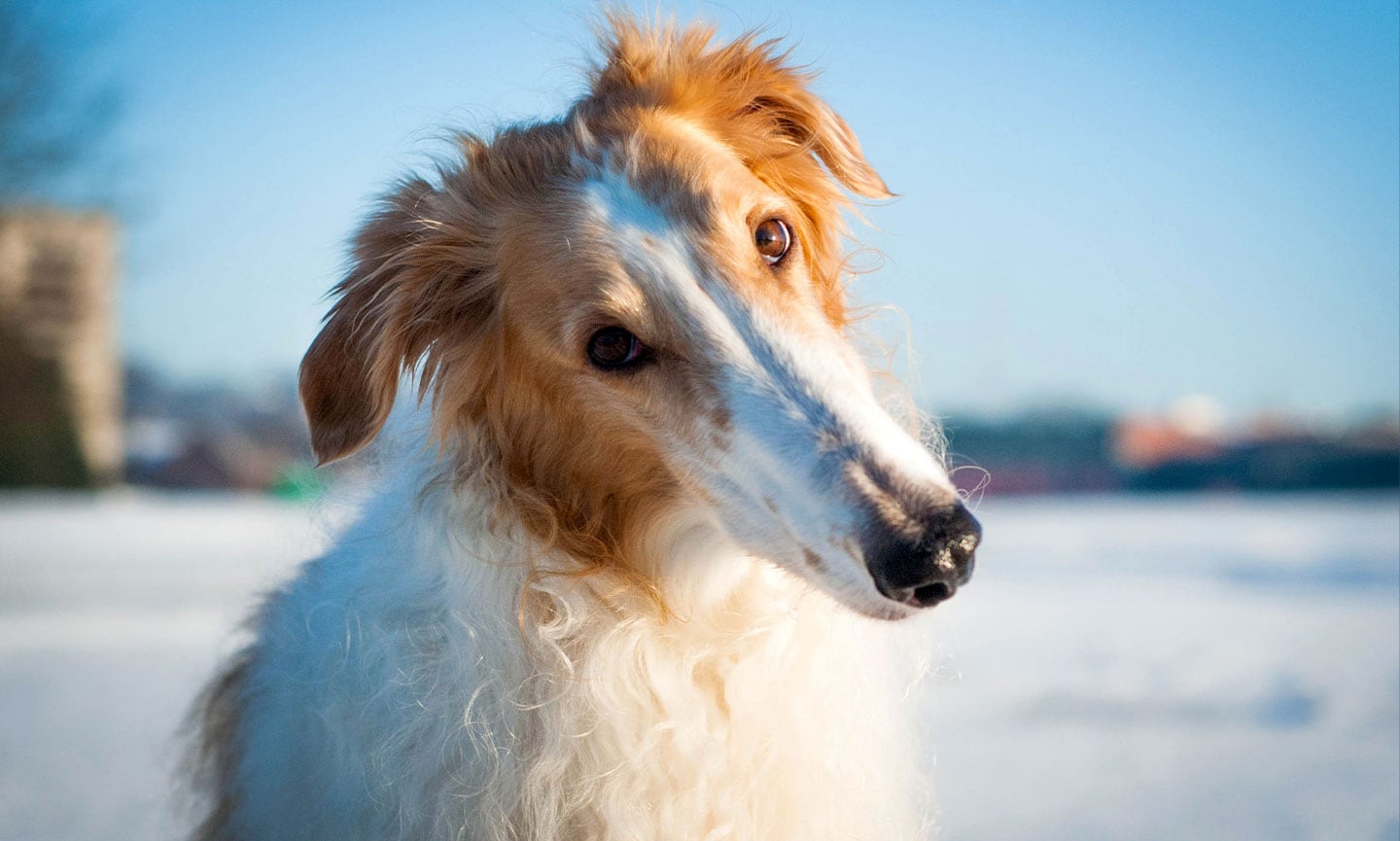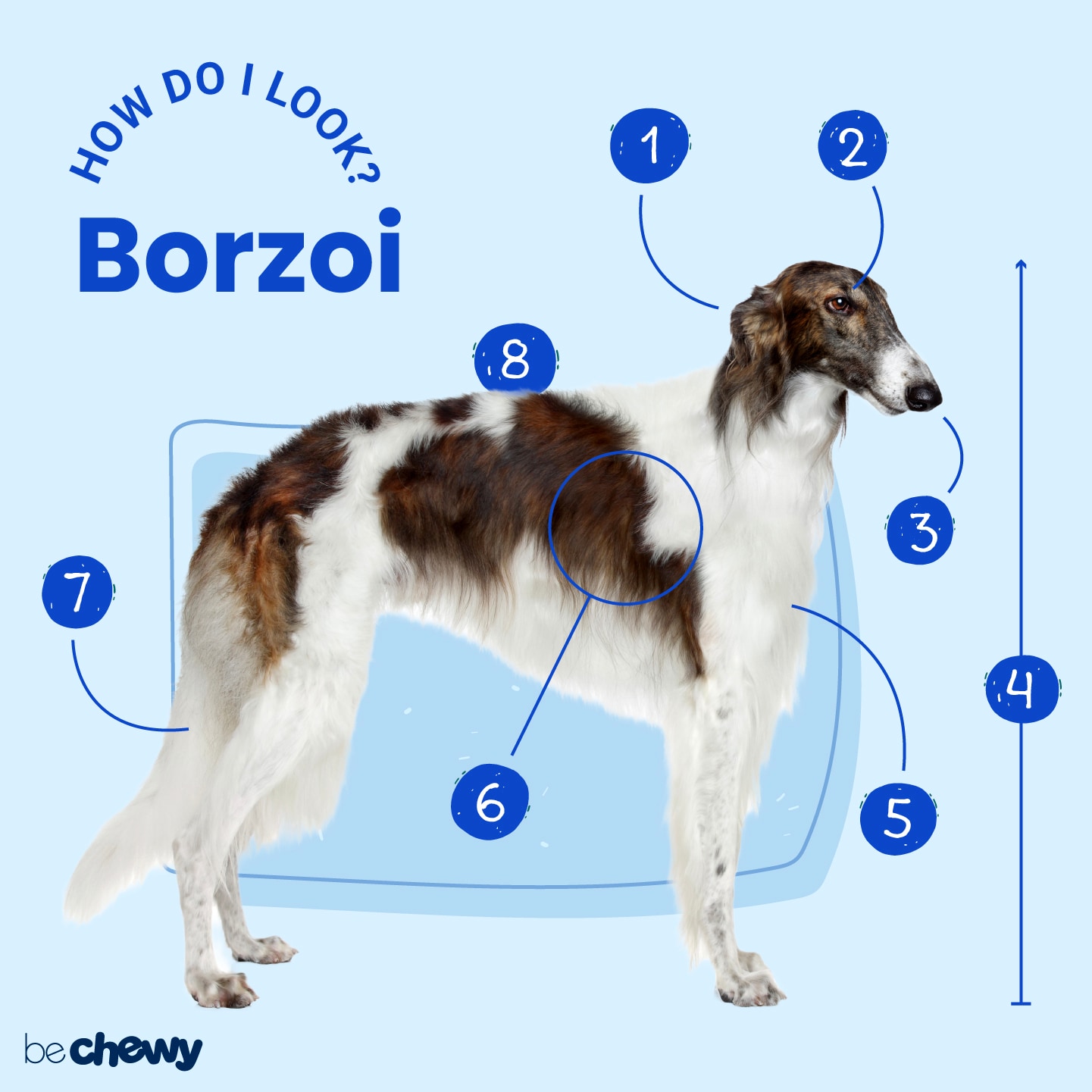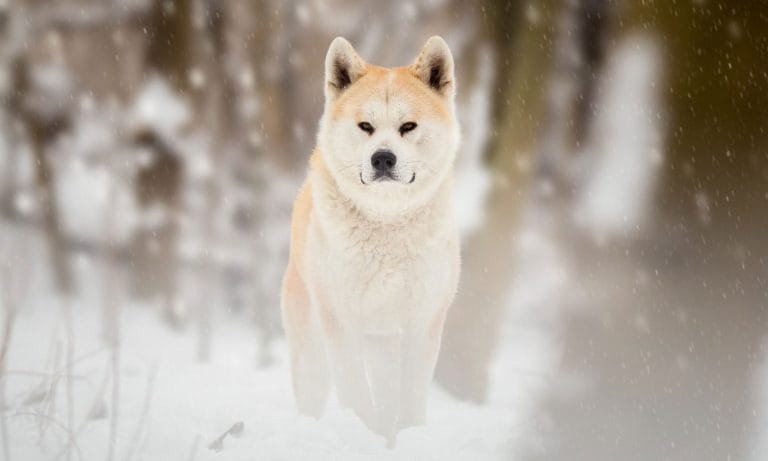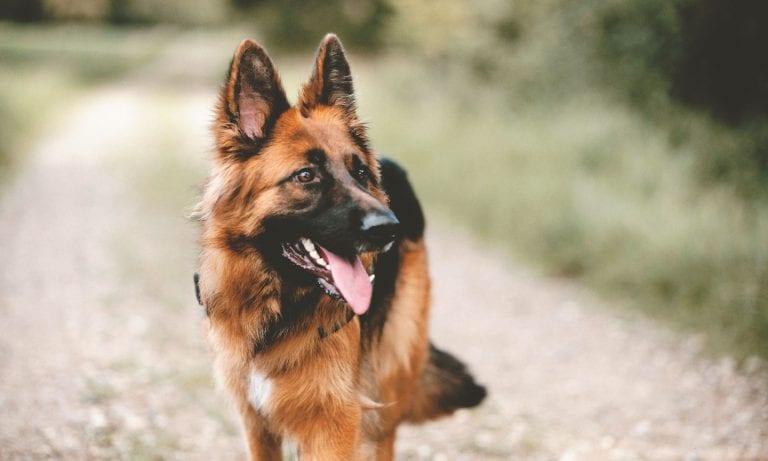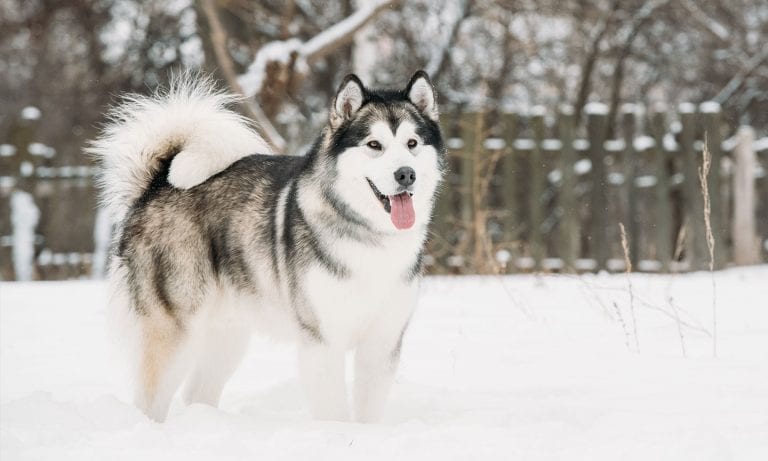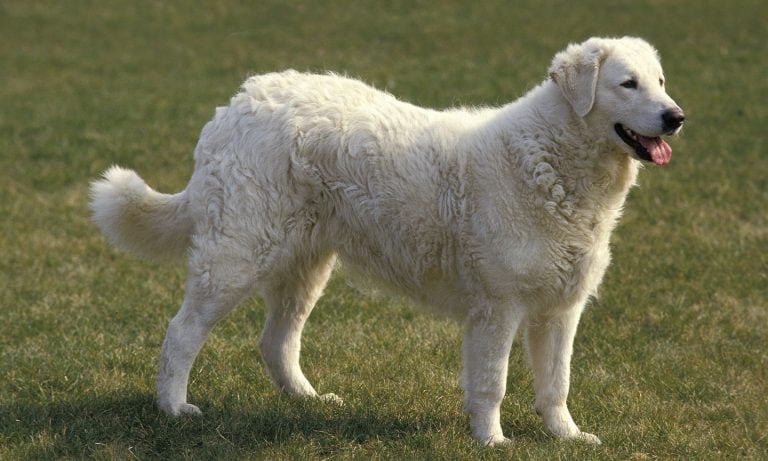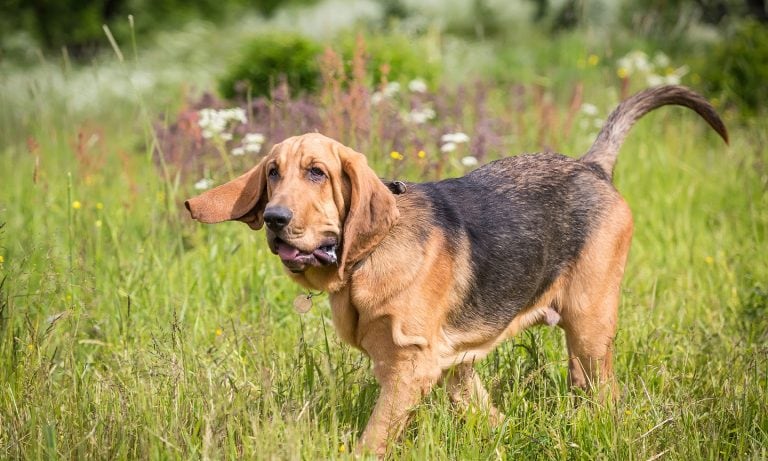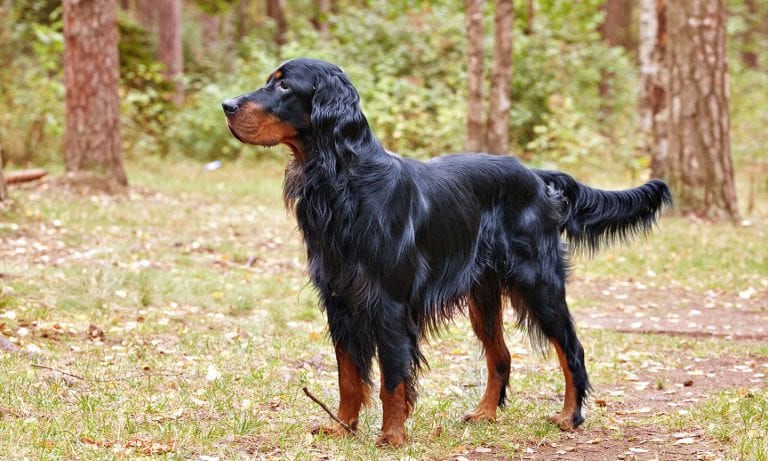The Borzoi understands your need for alone time. Bred to be independent, this dog is used to flying solo, so if you prefer quality time with close family over hanging out in a group of loose acquaintances, you’ve found a kindred spirit. Let’s just say you both have discerning tastes when it comes to the company you keep. But here’s the upside: When you’re in a Borzoi’s inner circle, you’ll have a gentle, loyal friend for life. (Bonus points if you have a fenced-in yard and a fun walking routine!)
Breed Snapshot
Temperament:
LoyalGentleIndependentCoat Color:
Black And CreamBlack And BrindleSilver BrindleGold BrindleSilver SableGold SableBrindled SableSabled GoldSabled Red
Best For
The Borzoi is a graceful Russian sighthound with a gentle, loyal demeanor. Their long, silky coat requires extra grooming, and they need a fenced area to run—but if you can provide all of that plus consistent training, you'll have a devoted pal for life.
Borzoi Temperament
The Borzoi is an independent, strong-willed dog breed with the regal air and gracefulness that are unmistakable traits of a sighthound. (Sighthounds hunt by sight, not scent.) They love their families, but they also like to do things their way and will definitely be up for a small-critter chase if they ever have the opportunity—and they may not come when you call until the chase is complete. So, it’s important they are always on a leash when they’re out and about. Still, these pups are typically quite gentle. When not running, they love nothing more than to collapse on the couch for a long nap.
Although they’re quite mellow, this dog may not be the best choice for families with children. Young kids tend to play roughly, and Borzoi will match their energy, potentially injuring the child. Proper (and early!) socialization can go a long way to help them get used to being around kids, and any children in your Borzoi’s life should be taught to play gently and respectfully with dogs. It’s a good idea to supervise their playtime, too.
Borzoi may also have a tendency to chase cats or other small pets, unless they’ve been trained and socialized otherwise. You may notice a tendency to be aloof around strangers, but again, socialization can help them be comfortable around new people and other pets.
How to Care for a Borzoi
Caring for the Borzoi breed takes time and patience, but this pup is worth the effort. Their coat is high maintenance, and they do shed a lot. They have a lot of energy to burn, too, but you can let them burn it off in a fenced area (translation: you don’t have to run with them). Borzoi are intelligent and take well to training, but it’s important to be consistent.
Borzoi Health
The Borzoi’s life expectancy is about 9 to 14 years. There are some health issues you should be aware of so you can help your pup live the happiest and healthiest life possible. Be sure you work with a reliable breeder; they screen the puppies and parents for several health problems to ensure conditions aren’t passed on to future generations. (Make sure you get a copy of the screenings.) And if you’re adopting your pup, make sure you get a copy of the vet wellness exam.
- Bloat or Gastric Dilatation-Volvulus (GDV): This is a common but serious issue in large dog breeds. If you notice your pet’s belly is distended or they act like they are retching or dry heaving with no vomit produced, get to your vet ASAP. In most cases, immediate surgery is the necessary treatment. Bloat is tied to genetic factors, but you can try to prevent this life-threatening emergency with adjustments to feeding and exercise. These changes include feeding your dog smaller meals throughout the day with a slow feeding bowl and waiting to exercise one hour before and after meals.
- Osteosarcoma: This is a hereditary bone cancer in which the tumor can be quite painful and can cause lameness. Depending on the severity, radiation, chemotherapy or amputation can be used to treat it.
- Hypothyroidism: This is a condition where a dog’s thyroid doesn’t produce enough thyroid hormones. Signs include weight gain, lethargy, and hair loss. Luckily, treatment is typically a simple medication given to your pup every day.
- Hip and Elbow Dysplasia: Dysplasia is caused when joints don’t form properly and are then loosely fitting, resulting in lameness, pain and arthritis. Treatment typically includes joint supplements, pain medication and, in severe cases, surgery.
- Sensitivity to Anesthesia: Borzis are sighthounds, which means they have lean muscle mass and low body fat. This means they absorb drugs more slowly, resulting in these dogs being slower to recover from general anesthesia or heavy sedation than other breeds. Be sure to discuss any concerns you have regarding upcoming anesthesia with your vet.
- Progressive Retinal Atrophy (PRA): This is a genetic condition that results in loss of vision for dogs. There is no treatment, but genetic screening is available so be sure to ask your breeder.
Borzoi History
As early as the 1600s (long before they came to be called Borzoi), these majestic dogs were prized by Russian aristocracy for their hunting abilities. They were the stars of the hunt, bred to chase and take down the wolves that roamed the steppes. These hunts were so spectacular with pageantry and excitement that the Russian writer Leo Tolstoy included one in “War and Peace.” The early Borzoi dogs may have had their origin in crosses of Greyhounds and Russian Sheepdogs.
But the heyday of the Borzoi tragically ended with the reign of the Romanovs and the Russian Revolution. Because the dogs were so closely linked to the aristocracy, they were almost completely wiped out after the revolution. Fortunately for modern Borzoi fans everywhere, enough dogs survived to continue the breed in the United States and other countries, where some dogs had already been exported.
The breed was first recognized by the American Kennel Club in 1891 but truly came into their own in 1936, when their name officially changed from the Russian Wolfhound to the Borzoi. The Borzoi Club of America was founded in 1903 under the name of The Russian Wolfhound Club of America.
So, where is the best place to find Borzoi puppies? You can find a list of reputable breeders on the American Kennel Club’s website. What’s the average Borzoi price? Depending on the breeder, expect to spend anywhere from $1,500 to $5,000 for a pup. But for that, you usually get a dog who’s been screened for health and temperament issues, and they might even come with pedigree papers. You can also reach out to Borzoi rescue organizations to adopt a Borzoi or keep an eye out for the breed at your local animal shelter. Search Chewy’s database of adoptable dogs for Borzoi in your area.
FAQs
How do you pronounce Borzoi?
Borzoi is easy to pronounce; it’s just the way it looks: BOAR-zoy.
Are Borzois hypoallergenic?
Unfortunately no, Borzoi dogs aren’t hypoallergenic, because they shed quite a bit. Pet parents who suffer from allergies may react to their hair and dander.
What are the most common Borzoi mixes?
The most common Borzoi mixes are:
- Borzoi-Poodle mix (Borzoi Poodle)
- Borzoi-Husky mix (Borzoi Husky)
- Borzoi-Collie mix (Borzoi Collie)
- Borzoi-Golden Retriever mix (Borzoi Golden Retriever)
- Borzoi-Greyhound mix (Borzoi Greyhound)
Note: These are not purebred dogs but mixed breeds.
What does Borzoi mean?
The meaning of the name, Borzoi, comes from the Russian word borzaya, which means swift or fast.
Are Borzois good pets?
Yes, Borzoi are good pets. These dogs are intelligent and gentle and can be affectionate with their families when properly socialized. If a Borzoi puppy is raised with children and other pets in the home, they may grow up to be good family dogs (always under supervision), but the Borzoi’s sheer size and desire to chase may not be a good match for tiny tots.
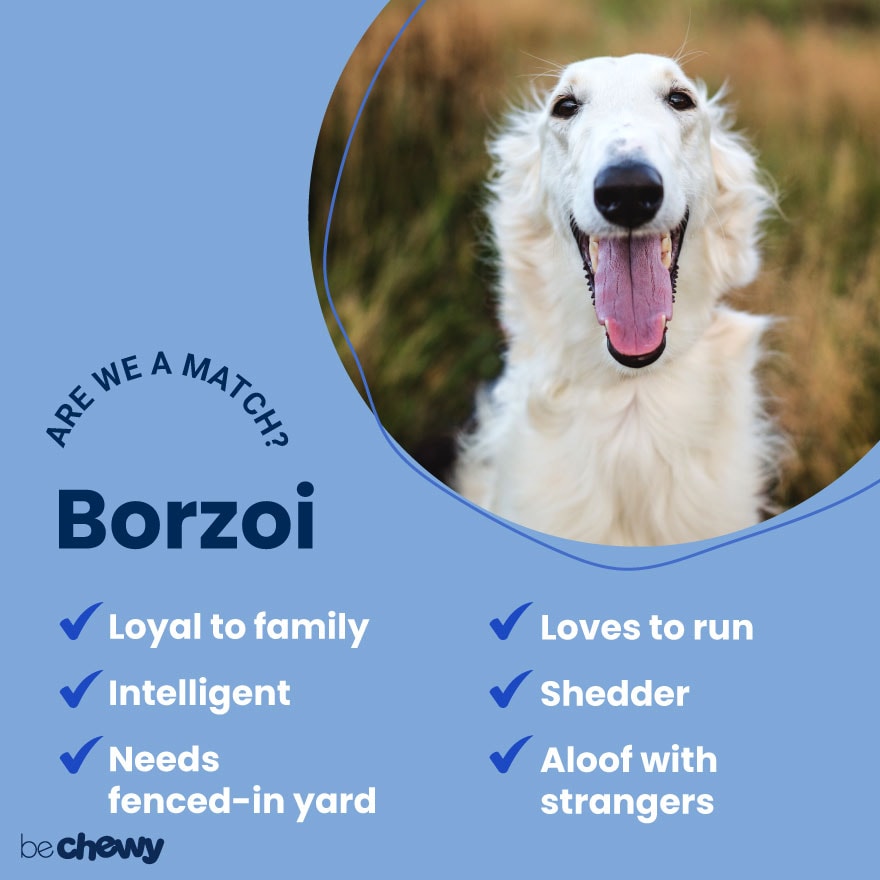
Top Takeaways
If you’re a history buff, an amateur hairstylist, or just have a yen for long-legged, long-nosed and long-haired doggos (and don’t mind brushing!), then the Borzoi just might be your kindred spirit. From their early days with the Russian aristocracy until today, the Borzoi has developed into a gentle, affectionate, sensitive and intelligent companion who will bring abundant joy to your life.
Expert input provided by veterinarian Dr. Lou Avant, DVM, of Lassiter Animal Hospital and certified dog trainer Christine Danker, CPDT-KA, KPA-CTP, PMCT3, of Hemlock Hollow LLC.
Breed characteristic ratings provided by veterinarian Dr. Sarah J. Wooten, DVM, CVJ, a veterinarian at Sheep Draw Veterinary Hospital in Greeley, Colorado; dog trainer and behavior consultant Irith Bloom, CPDT-KSA, CBCC-KA, CDBC, owner of The Sophisticated Dog, LLC, in Los Angeles; and certified animal behavior consultant Amy Shojai, CABC, in Sherman, Texas.
The health content was medically reviewed by Chewy vets.
Female Names
- Margo
- Kelpie
- Zsa Zsa
- Gigi
- Katya
- Lizka
- Vladymyra
- Akasha
- Ziggy
- Georgie
Male Names
- Gatsby
- Keanu
- Alex
- Slavny
- Misha
- Nochka
- Terma
- Cobalt
- Fenrir
- Clark Kent
Share:
